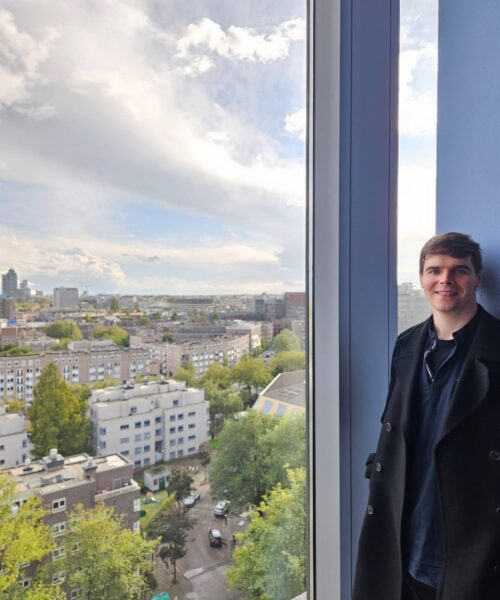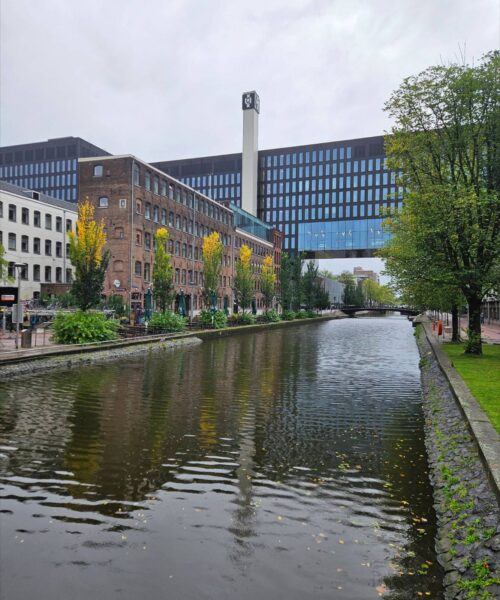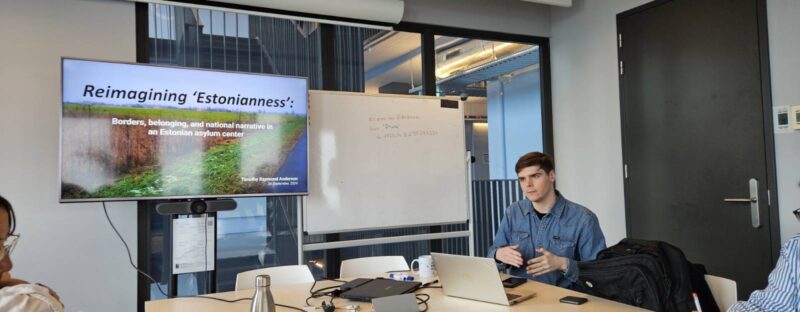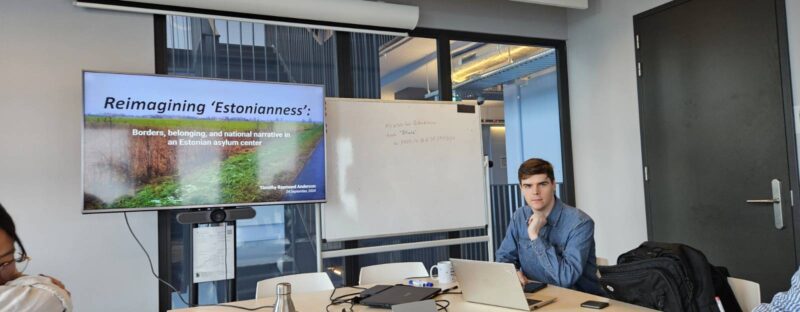
Please tell me a bit about yourself and your research
I’m a social anthropologist and human geographer specializing in border studies and migration governance. I’m originally from El Paso, Texas. My doctoral research at Tallinn University, which I recently completed, examined the lived experiences of refugees in Estonia via ethnographic fieldwork at local state institutions. I’m particularly interested in how borders (both physical and symbolic) function as dynamic sociocultural processes that shape identities and impact the lives of migrants who navigate them. I’m currently developing a new comparative project that analyzes the emergence of a trans-Atlantic security paradigm I call ‘Fortress Euro-America’, building upon a new framework I’m developing called ‘resonant borderscapes’. This postdoctoral project will involve comparative fieldwork in Estonia and southwest Texas.

Why did you apply for the exchange week at the University of Amsterdam?
I applied for the exchange week at UvA because of its renowned expertise in postcolonial studies and critical migration research. I was particularly interested in engaging with scholars like Professor Tina Harris and members of the ARC-M Research Dialogue group, whose work on decolonial methodologies and the politics of belonging aligns closely with my post-colonial analysis of Estonian identity. I also saw this as a valuable opportunity to present my doctoral research to a new audience, gain feedback on my work, and explore possibilities for future collaboration.
 |
 |
What did you do during your exchange?
During my exchange, I presented two lectures on my research. The first, titled Reimagining ‘Estonianness’: Borders, belonging, and national narrative in an Estonian asylum center, was delivered at a Research Centre for Migration workshop. This presentation focused on the experiences of asylum-seekers in Estonia and how they challenge dominant narratives of belonging. The second, Navigating ‘Estonianness’: Refugee categories and contingencies in the ‘Global East’, was presented as a special guest lecture to Political Science students, exploring how Estonia’s geopolitical liminality shapes its approach to migration. In addition to these lectures, I had productive research meetings with Professor Tina Harris, Dr. Nodira Kholmatova, and other members of the ARC-M Research Dialogue group on Migration Studies, discussing project ideas, article drafts, and potential research collaborations.
What kind of support did you get from UvA and the Border Lab project?
I received exceptional support from both UvA and the Border Lab project. The project funding covered my travel expenses, and the UvA staff provided logistical assistance, feedback meetings, and helped me connect with relevant scholars and research groups. I am particularly grateful for the opportunity to present my work at the Research Centre for Migration workshop and for the warm welcome I received from the ARC-M Research Dialogue group.
How did the exchange benefit your studies?
The exchange was incredibly beneficial. The feedback I received on my lectures, particularly from Professor Harris and the ARC-M Research Dialogue group, was insightful and will help me refine my postdoctoral research framework for ‘resonant borderscapes’ and my analysis of ‘Fortress Euro-America’. The connection with Dr. Kholmatova has led to plans to co-author an article on postcolonial approaches to Eastern Europe and Central Asia, a topic that is critically relevant to my research and that has been largely overlooked in the field. Moreover, the opportunity to share my work with a new audience at UvA, particularly students and early career researchers, expanded my perspective on migration studies and inspired new avenues for comparative analysis.